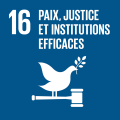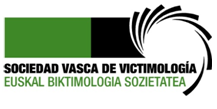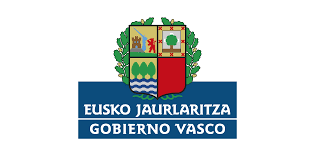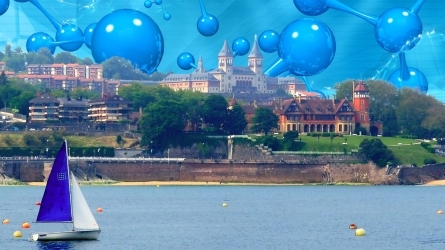
LIVE ONLINE WORKSHOP - Responding to macro-victimization: comparative insights
Description
Departing from the concept of macro-victimization, as abuse of power and mass-victimization in diverse contexts, and recalling the United Nations Declaration of Basic Principles of Justice for Victims of Crime and Abuse of Power, adopted by its General Assembly thirty-five years ago, different victimization processes will be analyzed in terms of victimological understanding, intervention, reparation, and prevention.
Those modalities will include international or atrocity crimes, political violence and terrorism, environmental crimes, white-collar criminality, organized crime, digital victimization, violence against women, children and people with disabilities, hate crimes, and aspects of victimization caused by COVID-19...
Objectives
To debate the understanding and the use of the notion of macro-victimization as severe and diverse victimization difficult to be tackled.
To bring examples of diverse forms of victimization, in different contexts, to consider how the abuse of power and mass-victimization can be prevented, treated and repaired, with special focus on its concrete victims, locally and globally.
To exchange ideas among academicians, researchers, practitioners, policymakers and human rights activists, of different disciplinary backgrounds, geographical origins, and generations, interested in topics that can be connected to Victimology.
To create future partnerships for the International Symposium of Victimology to be celebrated in Donostia/San Sebastián (6-10 June 2021), engaging local and global civil society.
Activity directed to
- University student
- Students not from university
- Teachers
- Professionals
- All public
Contributors
Program
03-07-2020
“Moderadora del taller“
- Idoia Igartua Laraudogoitia UPV/EHU
“Introducción al concepto de macrovictimización mediante la perspectiva de la Victimología verde“
- Jose Luis de la Cuesta Arzamendi IVAC/KREI - Director
- Gemma Maria Varona Martínez IVAC/KREI - Doctora investigadora permanente
“Justicia transicional“
- Josep M. Tamarit Sumalla Universitat Oberta de Catalunya
“Violencia contra las mujeres“
- Ana Isabel Cerezo Dominguez Universidad de Málaga
“Victimización sexual en contextos institucionales“
- Javier Gómez Zapiain Sociedad Vasca de Victimología - Coordinador de la web y antiguo profesor de Psicología de la Sexualidad de la UPV/EHU
“Victimización en criminalidad organizada: trata de seres humanos“
- Carolina Villacampa Universidad de Lleida
Break
“Las víctimas colectivas en la delincuencia económica“
- María Jesús Guardiola Lago Universidad Autónoma de Barcelona
“La COVID-19 y cuestiones de macrovictimización para investigaciones futuras: una exploración “
- Myriam Herrera Universidad de Sevilla - Profesora Titular de Derecho Penal y Ciencias Criminales
- Mar Gómez Gutiérrez Universidad Complutense de Madrid
“Victimología y guerra: Macro-victimization and killing robots: video introduced by students of Victimology of the degree of Criminology“
- Iñaki Subijana Zunzunegui Audiencia Provincial de Gipuzkoa
- Anna Arden Estudiante de Victimología
- Lucia Sedeño Estudiante de Victimología
- Paula Bayón González Estudiante de Victimología
“El nexo entre la macrovictimización y la experiencia individual de victimización“
- Enrique Echeburúa Odriozola UPV/EHU
Cierre
Directors

Gemma Maria Varona Martínez
IVAC KREI
Gema Varona is a lecturer in Victimology and Criminal Policy at the University of the Basque Country (UPV/EHU) and senior researcher at the Basque Institute of Criminology (Donostia/San Sebastian, Spain). In 1998 she was honoured with the Junior Scholar Competition Award of the International Society of Criminology for her research comparing restorative justice in Romani and non Romani communities. Former coordinator of the degree in criminology (2013-2017), current coordinator of the UPV/EHU MOOC on Victimology (2016-), and co-director of the Master in Victimology of that University (2014-), she is also the co-editor of the Journal of Victimology/Revista de Victimología. She has authored books on migration and human rights, restorative justice, juries and the construction of the forensic truth, women’s local safety audits, victims of terrorism, and victims of sexual abuse.
Speakers

Anna Arden
Estudiante Erasmus de Victimología en el grado de Criminología
Estudiante Erasmus de Victimología en el grado de Criminología. Después de su bachillerato alemán en 2015 y dos anos en el extranjero empezó en 2017 con la carrera de Derecho comparado y europeo. Al margen de este estudio pasó el curso de 2019/20 en la facultad de Derecho de la UPV/EHU en San Sebastián con el objetivo no solo mejorar su castellano sino también para obtener una idea del ordenamiento jurídico español y sus particularidades. Durante todo el estudio ha tenido un gran interés en el impacto de la política criminal en distintos Estados y al nivel internacional a los diferentes sujetos involucrados en el sistema de justicia penal.

Paula Bayón González
Estudiante de Victimología en el grado de Criminología

Ana Isabel Cerezo Dominguez
Universidad de Málaga
(Zaragoza, Spain, 1969) received her M.S. and Ph.D. in Criminal Law and Criminology in 1992 and 1998, respectively, from the University of Malaga (Spain). Since 1993, she joined the Criminal Law Department at the University of Malaga, where she is Full Professor. She was Fulbright Visiting Postdoc at the School of Criminal Justice, Rutgers University, Newark (U.S.) and Visiting Researcher at the Institute of Criminology, Cambridge (U.K.), at the Faculty of Law, Queensland University of Technology, Brisbane (Australia), at the Institute of information Sciences and Electronics, Tsukuba University (Japan) and at the Leuven Institute of Criminology (Belgium). Professor Cerezo is currently Director of Institute of Criminology in University of Malaga, where it will be held the next ESC Conference in September 2022. She has been President of the Spanish Society of Criminology (SEIC) and former member of the European Society of Criminology (ESC).
Obtained his Law Degree at Law Faculty of San Sebastián in1977, being distinguished with the Second Spanish National Prize (Law). In 1979, he equally obtained the High Diploma in Criminology at University Complutense of Madrid. He is Doctor in Law of the University of the Basque Country (1981: Extraordinary Prize of the Law Faculty). He visited several foreign institutions with a post-doctoral research purpose: in France (Université de Pau et des Pays de l'Adour), in the UK (University of Edinburgh), in Belgium (Université Catholique de Louvain), and, particularly, at the Max-Planck Institut (Freiburg, Germany, 1982-1983). Further research visits to DePaul University (Chicago, U.S.A., 1994), and to the Center for Judicial Studies & National Judicial College, University of Reno (2002) can also be underlined. He is Honorary President of the International Association of Penal Law (AIDP), after having served as President from 2004 to 2014.
(Born 1951 in San Sebastián, Spain) has been a Professor of Clinical Psychology at the University of the Basque Country (UPV/EHU) since 1979. He received his B.A. in Psychology from the Complutense University of Madrid in 1973 and his Ph.D. in Psychology from the Complutense University of Madrid in 1978. He was a founder member of the Basque Institute of Criminology in 1978 and he is past president of the Basque Society of Victimology (2004-2008). He has been the director of the research team in Clinical and Health Psychology at the University of the Basque Country since 2011. His publications include more than 530 papers and book chapters, as well as 35 books, mostly in the areas of anxiety disorders, gambling disorder, sexual aggression and violence. His current research is focused on intimate partner violence (psychological treatment of victims and perpetrators) and on violence risk assessment and management, as well as on behavioral addictions.

Mar Gómez Gutiérrez
Universidad Complutense de Madrid
Licenciada por la Facultad de Psicología de la Universidad Complutense de Madrid (UCM) en el año 2001 y doctora en Psicología en 2010 por la misma universidad. Su actividad investigadora se centra, desde el año 2003, en una línea de investigación que tiene como objetivo el estudio, evaluación y tratamiento del estrés postraumático en diferentes grupos de población. Esta línea se consolida a través de la participación, como colaboradora e investigadora, en diferentes proyectos de investigación que dan lugar a diferentes publicaciones en revistas científicas indexadas en JCR (9) y reconocidas a nivel internacional, además de libros (3) y capítulos de libros (4).

Javier Gómez Zapiain
Sociedad Vasca de Victimología
Ex Profesor Titular Psicología de la Sexualidad de la Universidad del País Vasco / Euskal Herriko Universitatea. Más información sobre su larga trayectoria investigadora docente y divulgadora en: www.javiergomezzapiain.com/

María Jesús Guardiola Lago
Universidad Autónoma de Barcelona
Licenciada en Derecho por la Universidad de Lleida (2000) y Doctora por la misma Universidad (2005), con sendos premios extraordinarios. Desde 2008 desempeña su actividad académica en la Universidad Autónoma de Barcelona, en el área de Derecho penal y Criminología. Cuenta con más de 30 publicaciones, en materias como: Trata de personas e inmigración clandestina; Justicia restaurativa; Victimología; Medios de comunicación y garantías penales, entre otras. Ha participado en 7 proyectos I+D+i y en otros 6 proyectos de investigación competitivos. Ha realizado diversas estancias de investigación, como en la Université de Liège (Bélgica) -durante dos años-, o en la Università degli Studi di Parma (Italia). Ha sido Magistrada suplente en la Audiencia Provincial de Tarragona (2006) y de Lleida (2012). Forma parte del Equipo de Redacción de la Revista de Victimología y del Consejo de Redacción de la Revista General de Derecho Penal. Es secretaria de la Sociedad Catalana de Victimología.

Myriam Herrera
Universidad de Sevilla

Idoia Igartua Laraudogoitia
Facultad de Derecho UPV/EHU
Doctora en Derecho Penal por la Universidad del País Vasco. Amplia experiencia profesional en la atención a víctimas de delitos y a la facilitación de procesos restaurativos, como jurista de los Servicios de Cooperación con la Justicia del Gobierno Vasco durante más de dos décadas. En la actualidad profesora del Departamento de Derecho Penal de la UPV/EHU y miembro del Laboratorio de Teoría y Práctica de Justicia Restaurativa.

Josep M. Tamarit Sumalla
Universitat Oberta de Catalunya
Catedrático de Derecho penal de la Universidad de Lleida desde 1999 y de la Universitat Oberta de Catalunya desde 2010, donde actualmente es director del Master en ciberdelincuencia. Su actividad de investigación se ha centrado en los ámbitos de la victimología, las sanciones penales, la justicia restaurativa y la justicia transicional. Además de los numerosos artículos y contribuciones en obras colectivas, entre sus monografías y obras editadas en los últimos años destacan “La victimización sexual de menores y la respuesta del sistema de justicia penal” (BdF-Edisofer 2017), “El estatuto de las víctimas del delito “(Tirant lo Blanch 2015),” Historical memory and Criminal Justice in Spain “(Intersentia 2013),” La justicia restaurativa: desarrollo y aplicaciones (Comares 2012), “Victimología teórica y aplicada” (Huygens 2013, en coautoría con Noemí Pereda), “Las sanciones penales en Europa (Aranzadi 2009) y”la tragedia y la justicia penal“ (Tirant lo Blanch 2009).

Carolina Villacampa
Universidad de Lleida
Carolina Villacampa is Professor of Criminal Law at the University of Lleida, where she has been teaching Criminal Law, Criminology and Victimilogy since 2002, when she became a senior lecturer at this institution. She is director of the Department of Public Law and of the master's degree in criminal justice system coordinated by this university and taught jointly by four Spanish public universities. For more than a decade, she combined her teaching activity at different Spanish, South American and European Universities with her jurisdictional activity as a substitute Magistrate at the Provincial Criminal Court of Lleida. She acts as a coordinator of the Victimology working group of the Spanish Society of Criminology. She has participated in 19 national and international research projects, having coordinated 5 of them. She has authored or co-authored numerous national and international scientific publications, both in Spanish and English.

Lucia Sedeño
Estudiante de Victimología en el grado de Criminología

Iñaki Subijana Zunzunegui
Tribunal Superior de Justicia del País Vasco, Presidente
Magistrado y Fiscal en excedencia. Ingresó en la carrera judicial en 1990, con primer destino judicial eb el juzgado de primera instancia e instrucción 1 de Azpeitia, en la provincia de Gipuzkoa. Tras ascender a magistrado, pasó la Audiencia Provincial de Cádiz (1992 y 1995). Sus siguientes destinos fueron ya en San Sebastián: juzgado de primera instancia 5 y juzgado de lo penal 2. En 2001 pasó a la sección primera de la Audiencia Provincial de Gipuzkoa. Presidió la Audiencia Provincial de Gipuzkoa desde septiembre de 2010 a abril 2021. En 2004 obtuvo el Doctorado en Derecho Penal por la UPV/EHU y en 2015 ha obtenido el título de Mediador que otorga la Fundación Notarial SIGNUM. Tiene reconocida la especialización en Derecho Civil especial o foral propio de la CAPV. Tutor externo del Practicum del Grado de Derecho en la UPV/EHU y profesor del Instituto Vasco de Criminología. Actualmente es Presidente del Tribunal Superior de Justicia del País Vasco, desde abril 2021.
Registration fees
| REGISTRATION | Until 03-07-2020 |
|---|---|
| 0 EUR |
Venue
Online streaming
Live online
Sustainable development goals
Agenda 2030 is the new international development agenda approved in September 2015 by the United Nations. This agenda aims to be an instrument to favour sustainable human development all over the planet, and its main pillars are the eradication of poverty, a reduction in equality and vulnerability and fostering sustainability. It is a unique opportunity to transform the world up to 2030 and guarantee human rights for all.

16 - Peace, justice and strong institutions
Foster peaceful and inclusive societies for sustainable development, facilitate access to justice for everyone and construct efficient and inclusive institutions that are accountable at all levels. Key issues: a reduction in violence, mistreatment and exploitation, the rule of law, equal access to justice, a reduction in corruption and bribery, efficient and transparent institutions, participation, access to information, protection of fundamental freedoms.
More information







